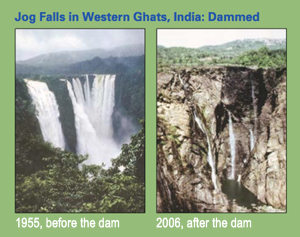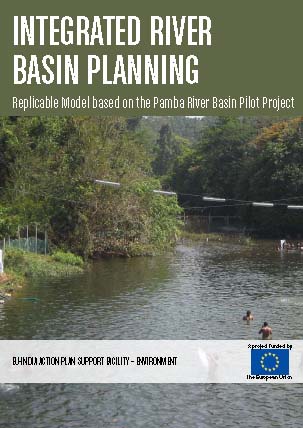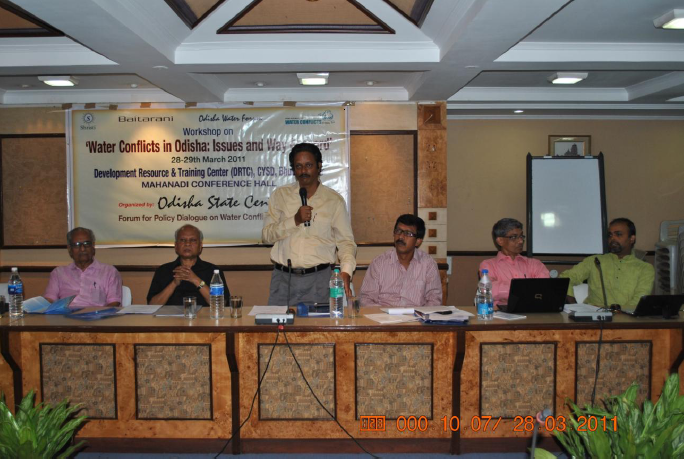/topics/common-property-resources
Common Property Resources
MoEF signs three agreements with World Bank for cleaning Ganga and conservation of biodiversity in June 2011
Posted on 16 Jun, 2011 04:55 PMThe River cleaning project is to the tune of US $ 1 billion (approximately Rs 4,600 crore) loan and credit that will form part of the Bank’s long-term support for cleaning the Ganga River. Two Biodiversity Conservation agreements are for a credit of US$15.6 million and US$8.14 million grant.
On this occasion, Sh Jairam Ramesh , Minister of State for Environment and Forest Minister said, “Two protected areas, one each in Uttarakhand and Gujarat, will put in place a complete new model of managing the protected areas while safeguarding the livelihoods of local communities. So far local community was looked as enemies of protected areas, but this has to be changed. We have to make local communities full partners in the protection and regeneration of these protected areas. These new models will be applied in other areas of the country.” Giving details of cleaning operations of last few years, the Minister said, “The objective of Ganga project is ‘by 2020 no municipal sewage and industrial effluent will be let into the river Ganga without treatment’. With the help from the World bank, we are taking a big step forward in achieving the Mission Clean Ganga”.
Changing with the seasons: How Himalayan communities cope with climate change - A report by Peoples’ Science Institute
Posted on 14 Jun, 2011 10:51 PMMountain areas and communities are susceptible to climate change. This work also yielded evidence of the coping strategies developed by the communities to deal with an unprecedented and only partially understood threat. This paper describes these strategies and attempts to assess the vulnerability of the communities in each valley.
Taking action in India on downstream impact of dams - Report of the workshop held by International Rivers and Save Western Ghats Movement at Jog Falls, Karnataka in May 2011
Posted on 14 Jun, 2011 05:17 PM Jog falls in Western Ghats
Jog falls in Western Ghats
These dams have had a profound negative impact on communities and ecology upstream and downstream. While promised benefits of these dams (irrigation, hydro-power or flood control) have been overstated, numerous interrelated and complex negative impacts have simply not been studied or documented. Nonetheless, communities and ecosystems continue paying huge prices of these impacts.
Tearing through the water landscape - Evaluating the environmental and social consequences of POSCO project in Odisha - A report by ESG
Posted on 08 Jun, 2011 03:34 PMBased on evidence from this inquiry, the study presents a critical analysis of the environmental and social impact information of POSCO's steel-power-port components to expose the fact that regulatory agencies have inadequate information on the short term and long term impacts of the project on the basis of the information that the company supplied to them. It also provides historical evidence
ADB funded hydro projects in Himachal Pradesh: Disastrous experience - Press release by Him Dhara, SANDRP and HLJM
Posted on 06 Jun, 2011 06:07 PMReport questions ADB funded projects under the 'Himachal Clean Energy Development Programme'.
- ADB loans for four hydroprojects at eco-fragile zones
- Livelihood concerns and environmental issues un-addressed
- Section 17/4 – Urgency clause being used by HPPCL for forced acquisition of land
- Poor EIA reports and non compliance to environmental norms
Recently, a Public Hearing for the World Bank funded Luhri Hydro Electric had to be cancelled after public protests making it clear that the environmental and social impacts of Hydropower projects as well as the increasing gap between their promise and performance, especially in the Himalayan region have become issues of serious concern. And yet these projects continue to be promoted in the garb of renewable and clean energy. So much so that governments are borrowing millions of rupees from international banks and financial institutions to fund these so called 'green' projects.The four ADB financed hydro power projects being constructed by HPPCL include the 195 MW Integrated Kashang Stage I, II and III and the 402 MW Shongtong-Karccham in Kinnaur. The other two projects are the 111 MW Sawara-Kuddu hydropower projects in Shimla district and the 100 MW Sainj hydropower project in Kullu District.
Integrated River Basin Planning – Experience on policy and practice in Pamba River Basin in Kerala – A report by APSF Environment Project
Posted on 30 May, 2011 09:50 PM The Pamba Pilot Project’s aim was to deliver “Policy Support to Integrated River Basin Management” and to contribute to the continuing EU-India policy dialogue in the water sector.
The Pamba Pilot Project’s aim was to deliver “Policy Support to Integrated River Basin Management” and to contribute to the continuing EU-India policy dialogue in the water sector.
Analysis of TAC guidelines and decisions in recent meetings' - Dams, Rivers and People - Newsletter of SANDRP for April, May 2011
Posted on 27 May, 2011 01:26 PM
Newsletter of South Asia Network on Dams, Rivers and People (SANDRP) for April - May 2011 (Volume 9 Issue 3-4), focuses on the following topics.
- Analysis of TAC guidelines and decisions in recent meetings
The Advisory Committee in the Union Ministry of Water Resources for consideration of techno-economic viability of Irrigation, Flood Control and Multi Purpose Project Proposals (TAC in short) is supposed to discuss the techno-economic viability of the irrigation, flood control and multi-purpose project proposals as per the Resolution published in the Union of India Gazette Notification No. 12/5/86-P-II dated Nov 27, 1987.
Proceedings of 'Water Conflicts in Odisha : Issues and way forward' - Organised by Odisha State Centre of the Forum for Policy Dialogue on Water Conflicts in India - 28th - 29th March 2011, Bhubaneswar
Posted on 27 May, 2011 12:48 PM
Development Resource & Training Centre (DRTC), CYSD, Bhubaneswar:
A 2-days Workshop on “Water conflicts in Odisha: Issues and way forward” has been organized during 28th – 29th, March, 2011 at Bhubaneswar by ‘Odisha State Centre’ of the ‘Forum for Policy Dialogue on Water Conflicts in India’. Environmental activists, thinkers, academicians, Government Officials, Farmer leader’s and Civil Society Organizations from different parts of the state participated in the workshop along with members of the National Steering Committee of Forum to discuss about the ongoing and emerging water conflicts in different geographies of the state.
A perspective of watershed development in the central Himalayan state of Uttarakhand – A paper by Malavika Chauhan
Posted on 25 May, 2011 08:23 AMIt traces the historical growth of thinking on watershed in the region, and highlights issues and influences. Impacts and benefits are discussed in relation to sustainability. The review shows that success in these projects is usually isolated, mostly seen in small micro-watersheds with naturally good water harvesting conditions.





